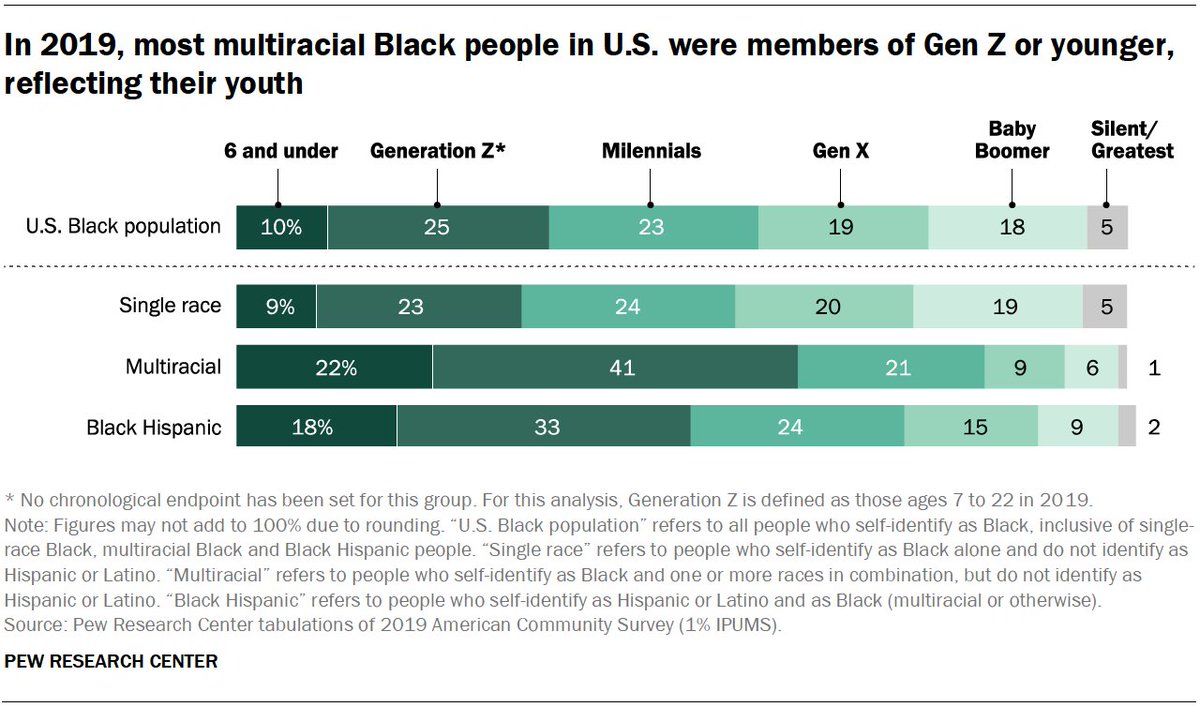
This is a thread on Black American demographics + Black immigrant data, with the findings compiled from Pew's latest ongoing research on this subject. First let's start with the overall number, 46.8 million Americans now identify as Black as a whole. 29% growth since 2000. /1 

2/ 10 % of the overall Black American population was foreign born, at about 4.6 million people. I think once you factor in their kids, you're looking at about 10 million+ Black Americans with an overseas lineage, about 20 - 25 % of the total. Huge growth in the African population 

3/ The median age for Black Americans as a whole is now 32, younger than both White and Asian Americans, with more Black Zoomers existing than even Black Millennials. 

4/ In terms of geographic presence, the majority of Black Americans now lives in the South(DMV area is technically considered the south by the census which shifts the edge to it). Regardless tho there is a definite "Back to the South" trend. 

5/ Texas, Florida, and Georgia now stand out as the states with the largest Black population as a whole, with NY and California rounding out the list. 

6/ In terms of metropolitan areas, NYC, Atlanta, and the DMV now lead the pack, with Chicago and Philly rounding out the list. 

7/ In terms of household incomes, while the median Black American household made $44,000 in 2019, about 30 % of all Black American households earned > 75k+. 

8/ If I had to extrapolate from all this data towards 2040, my biggest takes for the Black American population in 2040 are...
9/ - The Black Foreign Born population will be about 75 % African, with Nigeria + Ethiopia likely being 1/2 most represented. Caribbean migration is drying up.
- The Black American foreign born and multiracial population will both likely be 15 % each of the total by 2040.
- The Black American foreign born and multiracial population will both likely be 15 % each of the total by 2040.
10/ - NYC will continue to shed black people, as well as the state of California, NYC will still likely be the most populated area for Black Americans in 2040 though.
- Philly likely loses their hold in the top 5 to Houston.
- Black American median household income grows > 50k.
- Philly likely loses their hold in the top 5 to Houston.
- Black American median household income grows > 50k.
• • •
Missing some Tweet in this thread? You can try to
force a refresh




